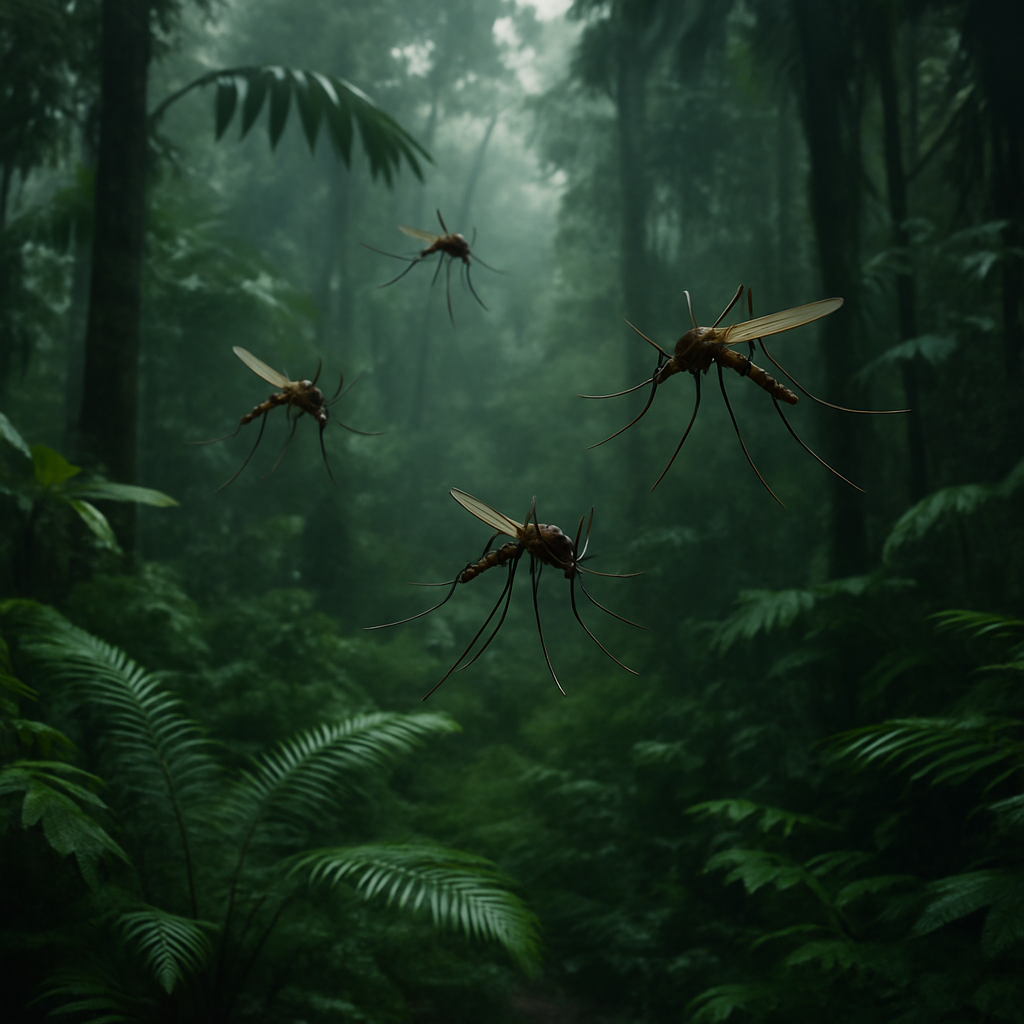The rainy season is a breath of fresh air after dry spells. It cools the air, nourishes the soil, and brings life back to our gardens. But along with blooming plants and dramatic skies comes an unwelcome visitor: mosquitoes.
Rain doesn’t just bring puddles, it triggers a full-on breeding frenzy for mosquitoes. With rising humidity, warmer temperatures, and abundant stagnant water, this season creates ideal conditions for mosquito populations to explode. Fortunately, you can outsmart them.
🌧 Why the Rainy Season Attracts Mosquitoes
Rainy weather fuels the mosquito life cycle. Here’s how:
- Pooled water = breeding sites: From potholes and puddles to clogged gutters and flowerpots, stagnant rainwater becomes the perfect nursery for mosquito larvae.
- Humidity = mosquito heaven: Mosquitoes thrive in moist environments. High humidity keeps them active for longer periods of the day.
-
Warmth accelerates life cycles: Warm post-rain conditions speed up egg development, turning eggs into adult mosquitoes in just 5–7 days.
Understanding this cycle is the first step to disrupting it.
🛡 6 Ways to Keep Mosquitoes Away During the Rainy Season
1. Eliminate Standing Water. Often.
Rain can collect in places you wouldn’t expect: plant saucers, tarp folds, or even bottle caps left outside. After every rainfall, walk around your home and check for:
- Buckets, toys, and planters
- Pet bowls, birdbaths, or fountains
- Rooftop gutters and downspouts
- Trash can lids and covers
-
Uneven pavement or outdoor furniture
Even the smallest pool of water can hatch hundreds of mosquitoes.
2. Deploy Eco-Friendly Mosquito Traps
Instead of spraying chemicals into the air after every storm, try a smarter, longer-term solution. Devices like Mosqitter use a combination of attractants (like CO₂ or heat, etc.) to trap mosquitoes safely and effectively, without chemicals or smoke.
Perfect for:
- Patios
- Garden setups
- Inside homes in high-risk areas
- Bonus: they work rain or shine and don’t interfere with your health or your garden’s.
3. Seal Entry Points with Physical Barriers
Rainy nights are often when mosquitoes sneak indoors.
- Fix holes in window and door screens
- Use mosquito nets over beds and outdoor spaces
-
Install door sweeps or weather stripping on low-hanging entrances
Creating a physical barrier, especially during evening hours, keeps your indoor space bite-free.
4. Plant a Natural Defense Wall
These plants don't just look good - they smell good to you but bad to mosquitoes:
- 🌿 Citronella: Classic mosquito repellent in candle and plant form
- 🌸 Lavender: Calming for humans, repellent for pests
- 🌾 Lemongrass: A tall, tropical plant that wards off insects
-
🌱 Basil & Mint: Great for cooking and biting deterrents
Plant them near doors, windows, and sitting areas to create a natural line of defense.
5. Dress Smart, Especially After Rainfall
Mosquitoes are most active at dawn and dusk, particularly after rainfall when conditions are humid and calm.
- Wear long sleeves and light-colored clothes (they’re less attracted to pale shades)
- Avoid perfumes or scented lotions when outdoors
-
Consider insect-repellent fabrics or applying non-toxic repellents when gardening or walking in damp areas
6. Keep the Air Moving
Still, damp air is a mosquito’s favorite playground. Adding movement with fans or breezes disrupts their flight path.
- Place oscillating fans on porches or patios
- Use ceiling fans in covered outdoor areas
-
For indoor protection, keep air flowing especially at night
☔️ Final Thoughts: Enjoy the Rain, Not the Bites
The rainy season doesn't have to mean hiding indoors or bathing in bug spray. With mindful prevention, nature-friendly tools, and a little gardening magic, you can enjoy the beauty of rainy days without the itch.
✅ Stop mosquitoes before they hatch.
✅ Choose clean, chemical-free control.
✅ Enjoy fresh air, safely.
Want more tips on how to stay mosquito-free all year round? Sign up for our newsletter or follow us @mosqitter for updates, deals, and science-backed mosquito control advice.


